UNIVERSITY OF KANSAS SCHOOL OF LAW
HANDS-ON LEARNING HANDBOOK


UNIVERSITY OF KANSAS SCHOOL OF LAW
HANDS-ON LEARNING HANDBOOK

Jean Gilles Phillips Clinical Professor of Law & Director of Clinical Programs
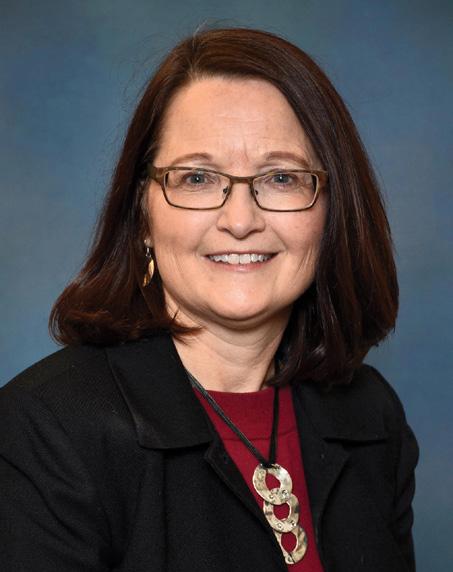
More than 50 years ago, KU Law became a pioneer in clinical legal education when it launched the Paul E. Wilson Project for Innocence and the Legal Aid Clinic. Since then, the law school has built an experiential learning program that includes a mix of live-client clinics, field placements and skills simulations. Students sharpen their professional skills and gain practical experience under the supervision of clinical faculty, practicing attorneys and judges. In the clinics and field placement programs, students have the opportunity to represent clients in district or appellate courts, prosecute criminal cases, conduct negotiations on behalf of clients, write bench memos for judges, and work in a variety of governmental or nonprofit offices. Through a diverse offering of experiential courses, students learn to take and defend depositions; write and argue mock appellate briefs; and negotiate and close a mock business deal. With hands-on learning, students gain the experience necessary to be ready for practice.


Students must complete 90 credit hours to earn a J.D. degree.
Legal
Project for Innocence & Post-Conviction Remedies
Tribal Judicial Support Clinic
Criminal Prosecution Field Placement
Elder Law Field Placement
Field Placement Program
Judicial Field Placement
KU Medical-Legal Partnership Field Placement
6th Semester in Washington, D.C. Program
1L Courses
Complete all
Law 972 Professional Responsibility
Complete within first 60 credits earned
Electives
Complete 3
Writing Courses
Complete 3
Criminal Procedure: Investigation LAW 845 Jurisdiction
Courses from this section may also count torwards writing credits.
Professional Writing Course Name
Professional Writing Course Name Scholarly or Professional Writing Course Name
* The same course may not count as both a writing and experiential credit.
Course Name
Experiential Courses
Complete 6 hours
Course Name
Course Name
credit hours needed to graduate
Credit Hours
* The same course may not count as both a writing and experiental credit.
Unless in a joint degree program, only 6 credit hours may be taken outside of the law school. Requires permission of the Associate Dean for Academic Affairs.
hours
No more than 16 credit hours may be field placements or clinical courses.
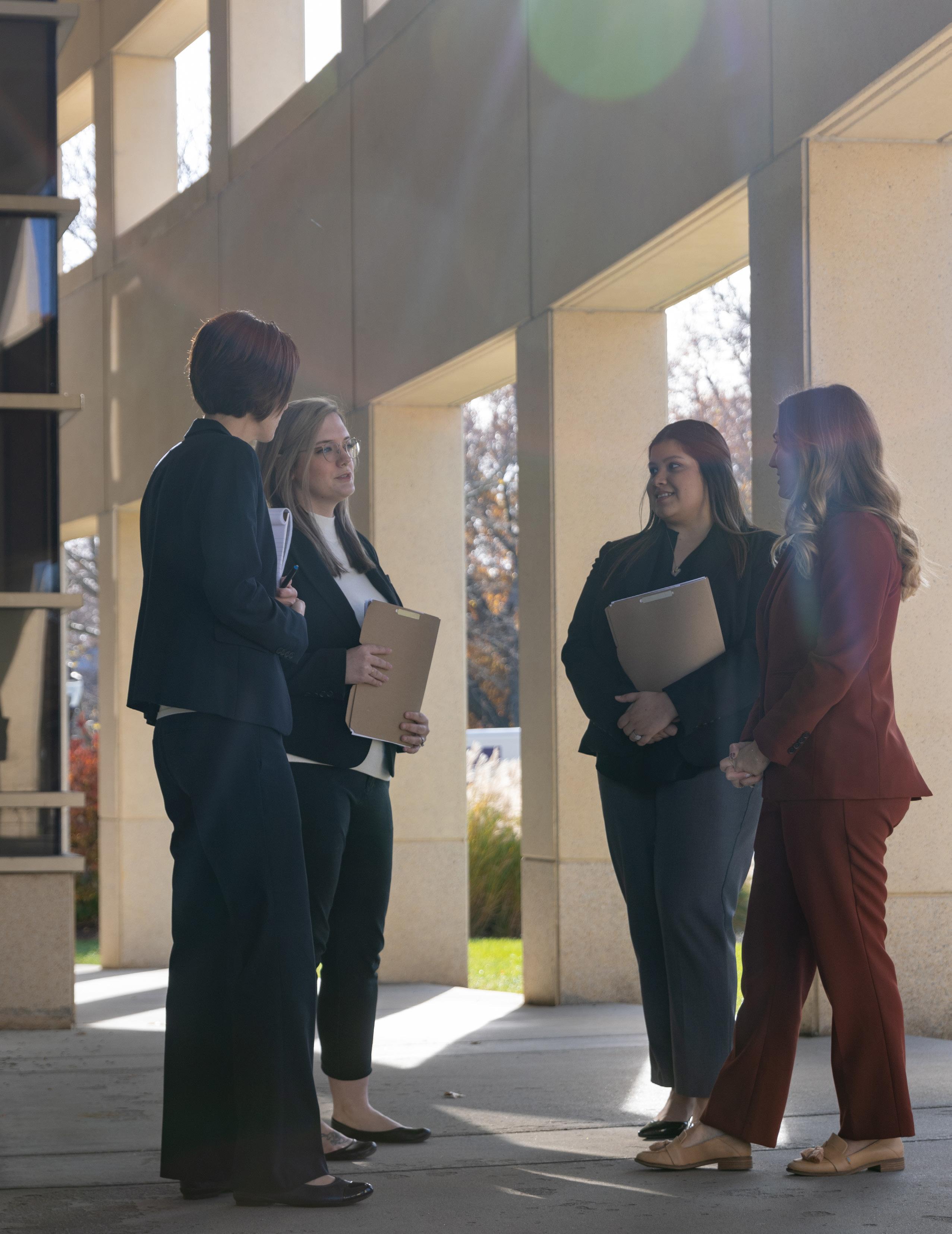
KU Law students take the lead on real cases with real clients, honing practical skills while providing quality legal representation to underserved individuals and communities. Clinical offices are housed in the law school, and full-time KU Law faculty and staff attorneys supervise. Each clinic also includes a classroom component. For more information, visit law.ku.edu/clinics.
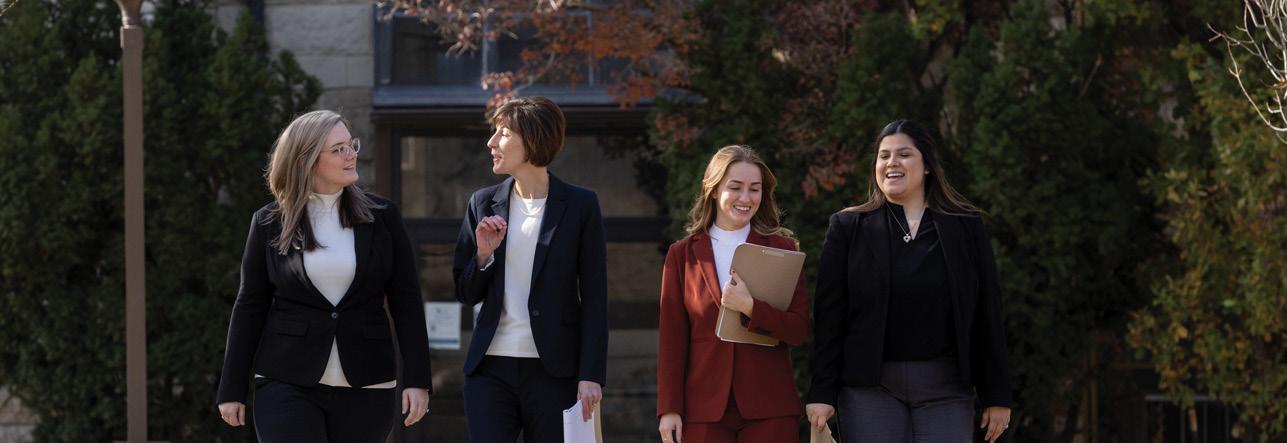
The Legal Aid Clinic (Law 952) offers students the opportunity to fine-tune their lawyering skills in a fastpaced, live-client setting by representing low-income clients at the trial court level. The clinic’s caseload is divided into four general areas:
• A criminal practice for juveniles charged with crimes in Douglas County District Court;
• A criminal practice for adults charged with crimes and municipal violations in Lawrence Municipal Court;
• A civil practice to represent individuals seeking expungement of criminal records in Douglas County; and
• A civil practice to provide legal assistance for individuals seeking name and gender marker changes through the Douglas County District Court.
Under faculty supervision, students assume primary responsibility for all aspects of their cases from initial contact to trial or other resolution. The Legal Aid Clinic is designed for students who are interested in learning about litigation, including client counseling, ethical case management, discovery, case analysis and negotiation. More information and application to the program can be found at law.ku.edu/legal-aid-clinic
Eligibility: All Legal Aid Clinic students must be eligible for a student license pursuant to Kansas Supreme Court Rule 715. Students apply to the clinic prior to the semester in which they wish to enroll. In spring and fall, Law 952 is a 6-credit course; in summer, students enroll in both 2.5-credit sessions for a total of 5 credits. Students who successfully complete Law 952 may also apply for the 3-credit course Advanced Legal Aid Clinic, Law 833.
Pre- or Co-Requisites: Professional Responsibility and Evidence are required; Trial Advocacy may be a pre- or co-requisite.
For more information, contact Melanie Daily at melaniedaily@ku.edu or Meredith Schnug at mschnug@ku.edu.

Students in the Project for Innocence (Law 895 and Law 896) provide assistance to prisoners who otherwise do not have legal representation. The clinic litigates claims of actual innocence, ineffective assistance of counsel, prosecutorial misconduct, newly discovered evidence and constitutional violations. Our representation extends to both district and appellate court litigation at the state and federal level. As a result, students engage in a variety of legal skills, including interviewing clients, conducting fact investigations, creating case strategies, locating and working with expert witnesses, drafting and filing pleadings and motions, preparing and conducting hearings, and preparing appellate briefs. In the process, students learn about the criminal justice system and the impact of its mistakes.
The Project is designed to engage students who are interested in either district or appellate court litigation, as well as those who are interested in criminal law. More information and application to the program can be found at law.ku.edu/project-innocence
Eligibility: Students are eligible to apply to the Project after the successful completion of the first year of law school. Students must apply to participate and can be selected for either the fall/spring semesters for 4 credit hours a semester (students must enroll in both semesters), or for the summer session for 3 credit hours a session (students must enroll in both summer sessions). Each semester/session satisfies either the upper-level writing requirement or the experiential requirement.
Pre- and Co-Requisite: Enrolled in both Law 895 (fieldwork component) and 896 (classroom component); Criminal Procedure: Investigation, unless otherwise approved.
For more information, contact Jean Phillips at phillips@ku.edu or Beth Cateforis at escat@ku.edu.

Students in the Tribal Judicial Support Clinic (Law 998) provide research assistance to tribal court judges and personnel in projects that include tribal code development, legal research and drafting of legal memoranda, and judicial orders. Students are assigned research projects from participating tribal courts, and in the process have opportunities to meet with tribal attorneys and judges at tribal headquarters. In the past, clinical students have engaged in groundbreaking work for local tribes. More information and application to the clinic can be found at law.ku.edu/tribal-judicial-support-clinic.
Eligibility: No application is required. Students enter the clinic by following standard enrollment procedures. Students can earn 3 credit hours for the semester. Participation in the clinic satisfies the Tribal Lawyer Certificate Program internship requirement.
Pre- or Co-Requisites: None
For additional information, contact Shawn Watts at shawn.watts@ku.edu.

KU Law students perform legal work at approved courts, nonprofit organizations and government agencies under the supervision of a practicing attorney. KU Law offers specialized placement opportunities in criminal prosecution, elder law, the judicial branch and the medical-legal partnership setting. Field placements also include a classroom component. For more information, visit law.ku.edu/field-placements.

Students in the Criminal Prosecution Field Placement (Law 890) gain courtroom experience working side by side with prosecutors in federal, state and local offices in virtually all phases of the criminal justice process. In addition to appearing regularly in court on behalf of the prosecution, interns work closely with law enforcement agencies in developing cases, preparing trial court documents and drafting appellate briefs.
The Criminal Prosecution Field Placement consists of two components: working in a prosecutor’s office and an academic component. The academic component includes a program orientation session, a professionalism training session, classroom sessions (except during the summer), online educational modules, meetings with the Program Director, a goals memo, weekly journal entries and a final reflection paper. More information and application to the program can be found at law.ku.edu/criminal-prosecutionfield-placement.
Students may earn between 3 and 6 credit hours during a semester, including the summer semester. (A student may earn 9 credit hours, total, in the Criminal Prosecution Field Placement Program.)
Eligibility: To be considered for the Criminal Prosecution Field Placement Program, students submit a completed application, resume and unofficial law school transcript.
Pre- or Co-Requisites: To be enrolled in the field placement, students must have completed Evidence and be eligible for a student license pursuant to Kansas Supreme Court Rule 715 or another state's equivalent.
For more information, contact Glenn Jewell at gjewell@ku.edu.
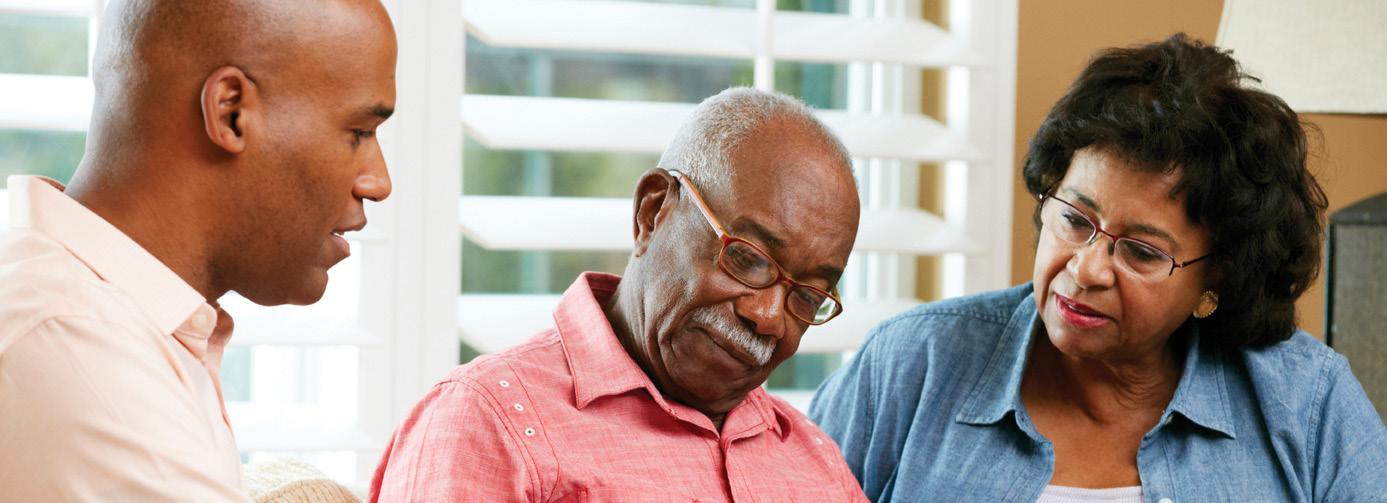
Students in the Elder Law Field Placement (Law 901) work under the supervision of attorneys from Kansas Legal Services assisting low income and low networth seniors with a variety of legal issues, including: landlord-tenant and housing, consumer protection, Medicaid, probate and simple estate planning. Students interact with clients and prepare documents, such as durable financial and healthcare powers of attorney, living wills, transfer on death deeds and wills.
Students are placed with Kansas Legal Services, a private, nonprofit law firm with 11 field offices that serve senior citizens in all Kansas counties. KLS also operates the Kansas Elder Law Hotline. Each office has a Senior Citizens Law Project that serves counties in the vicinity of the office. Generally, students work in the Kansas City or Topeka offices. Arrangements can be made to be placed in Wichita or Manhattan.
Eligibility: Students are eligible to apply for the Elder Law Field Placement program after successful completion of their first year of law school. Students earn 3 credit hours per semester and can participate in either the fall or spring semester. Students can also choose to participate for both semesters. The Elder Law Field Placement program application is available at law.ku.edu/elder-law.
Pre- or Co-Requisites: Successful completion of the first year of law school.
For more information, contact Thomas Lasley at lasleyt@klsinc.org

The Field Placement Program (Law 894) provides students the opportunity to earn credit for legal work performed under the supervision of a practicing attorney outside of Green Hall. It’s an excellent opportunity to learn from practicing attorneys working on actual cases and legal issues. Students are responsible for finding their field placements, which must be with a governmental agency or nonprofit. To earn course credit, the student must perform primarily legal work, be supervised by an attorney and not receive monetary compensation. For listings of available internships, please check Symplicity.
Past field placements include: the United Nations, JAG Corps, Colorado Attorney General’s Office, Kansas Attorney General’s Office, EPA, Department of Education Office of Civil Rights, ACLU of Kansas, Spencer Museum of Art, the Kansas Department of Revenue and many more.
Students must work 42.5 hours for each hour of credit, complete a goals memorandum, maintain weekly journals of their experience, complete online coursework and write a final reflective paper. They also must attend an orientation and professionalism session.
Eligibility: Students are eligible to apply for the Field Placement Program after successful completion of their first year of law school. The application is available on the KU Law website at law.ku.edu/field-placement-program and must be submitted to Janette Roundy at janetteroundy@ku.edu by the deadline. Upon acceptance, you will be given an enrollment code.
Pre- or Co-Requisites: None
For more information, contact Glenn Jewell at gjewell@ku.edu

Students in the Judicial Field Placement Program (Law 933) serve as interns with federal and state judges. Under the supervision of a judge, law clerk or staff attorney, interns perform research, draft documents and observe courtroom proceedings to expand their knowledge of how our court systems operate. More information and application to the program can be found at law.ku.edu/judicial-field-placement
Eligibility: Students are eligible to participate in the Judicial Field Placement after successfully completing their first year of law school. They may participate one of three ways:
1) Summer internship through the law school: This internship is open only to summer and fall starters finishing their first year of law school and requires that students submit a Judicial Field Placement application packet to Glenn Jewell. Summer interns earn 6 credit hours.
2) Fall-Spring internship through the law school: This internship is open to all second- and thirdyear law students and requires that students submit a Judicial Field Placement application packet to Glenn Jewell. Fall-Spring placement is a full academic-year commitment with 3 credits per semester.
3) Independently secure an internship: For students who locate their own judicial internship, credit may be obtained by submitting an application to Glenn Jewell along with a letter of interest from the judge that confirms the internship and explains the work that will be performed. The work must consist of research and writing, and observation of hearings, trials and chamber conferences. Students must complete significant written work.
Pre- or Co-Requisites: None
For more information, contact Glenn Jewell at gjewell@ku.edu

The KU School of Law Medical-Legal Partnership (MLP) is a collaboration between the KU School of Law and two health systems: The University of Kansas Health System at KU Medical Center in Kansas City, and LMH Health in Lawrence. Under the supervision of experienced MLP attorneys, students assist in providing free transactional legal assistance to low-income patients and their families in the following areas of civil law:
I – Income/Insurance (denials of public benefits, Medicaid/Medicare, Social Security benefits)
H – Housing (evictions, issues with public housing, Section 8, poor rental conditions)
E – Education/Employment (IEPs, school conflict, FMLA leave)
L – Legal Status (immigration matters, including naturalization, trafficking/crime victims)
P – Personal/Family Stability (Advance care planning – wills, living wills, health care and financial powers of attorney, protection from abuse/stalking orders, guardianships/conservatorships)
MLP interns gain extensive transactional experience conducting intake interviews; developing case strategies; conducting legal research; and preparing legal pleadings, briefs and memoranda of support. They may represent clients in administrative hearings and district court if the student is eligible for a student license pursuant to Kansas Supreme Court Rule 715.
Eligibility: Applications are available at law.ku.edu/medical-legal-partnership and are accepted on a rolling basis. Students may participate during the fall, spring or summer semesters for up to 6 credit hours. Upon acceptance, students will be provided an enrollment code for LAW 936.
Pre- or Co-Requisites: Successful completion of the first year of law school.
For more information contact Glenn Jewell at gjewell@ku.edu or one of the supervising attornies Lindsey Collins, Managing Attorney for the KU MLP at KU Medical Center, lindsey.collins@ku.edu; or Juliann Morland DaVee, Managing Attorney for the KU MLP at Lawrence Memorial Hospital, juliann.davee@ku.edu.
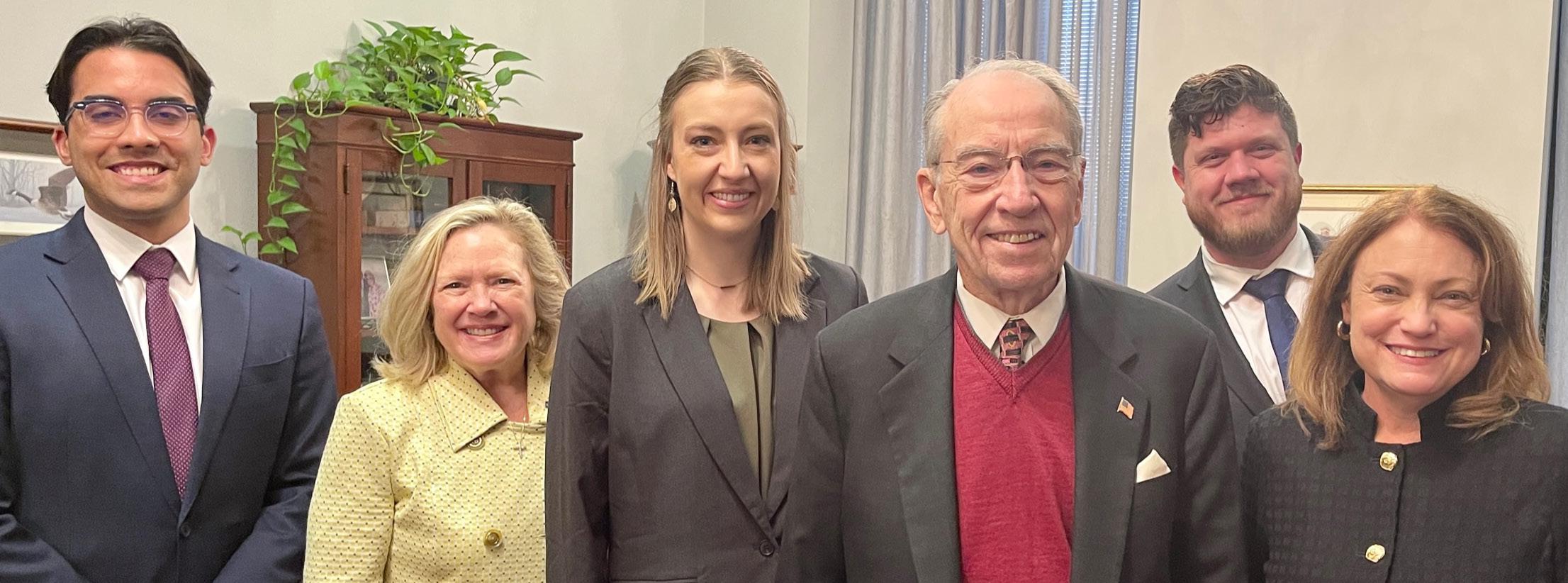
The 6th Semester in Washington, D.C. Program gives students work experience and connections within the D.C. legal, political and public interest communities. Through the program, students meet, learn from and network with influential and accomplished D.C. attorneys from the public and private sectors in the D.C. region.
Each student is responsible for securing an internship in the public or nonprofit sector. Past field placements include the House Judiciary Committee, the Senate Agriculture Committee, the Department of Homeland Security, ASPCA, PBS, the National Resources Defense Council and the National Association of Attorneys General. To earn credit, the student must be engaged primarily in legal work, be supervised by an attorney and not receive monetary compensation. Students complete a goals memo, weekly journals and a final reflection paper for the program.
In D.C., students take classes taught by KU Law faculty that address topics pertinent to D.C. and public service or incorporate local speakers and resources. Courses are offered on a schedule that allows students to balance study and work obligations. Students enroll in 6 to 9 credit hours for the field placement. More information and application to the program can be found at law.ku.edu/6th-semester
Eligibility: Students in good academic standing are eligible to participate in the D.C. program during their final semester. Students interested in this program should meet with Glenn Jewell as early in their law school career as possible, preferably during their 1L year.
Pre- or Co-Requisites: Be in the last semester of law school; enroll in the Sixth Semester Field Placement taught in Washington, D.C.
For more information, contact Glenn Jewell at gjewell@ku.edu
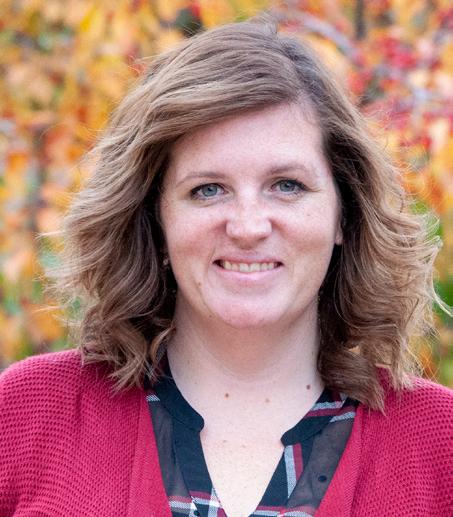
“Throughout my time in the Legal Aid Clinic, I built a one-on-one mentoring relationship with Professors Dailey and Schnug. I left the clinic knowing I had two excellent practitioners in my corner willing to help me in any way they could.”
Heddy Pierce-Armstrong, L’22 | El Dorado, KS Legal Aid Clinic

“The Judicial Field Placement has helped me learn what information a judge will value most in a proceeding. I have gained valuable hands-on experience and gained a large network through this program."
Dylan Dupre, L'24 | Houma, LA Judicial Field Placement

“
I got to work on so many different legal issues. I worked on estate planning issues, housing issues, elder divorce, collections and everything in between. The Elder Law Field Placement has something for everyone regardless of legal interests.”
Peyton Weatherbie, L'23 | Paola, KS Elder Law Field Placement
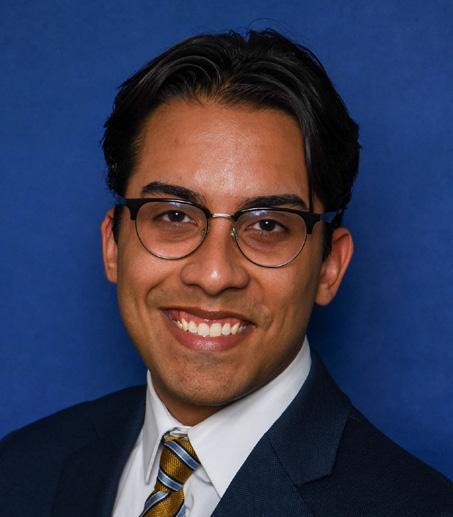
“I participated in the Sixth Semester in D.C. program to gain practical litigation experience. I now have a better understanding of the federal government's approach to litigation. Some of my favorite moments were when I finally untangled a complicated issue.”
Roman Panickar L'23 | Frederick, MD Sixth Semester in D.C. Program | U.S. Department of Justice

“During my time with Kansas Athletics and the Field Placement Program, I improved my legal research and writing skills. Perhaps more importantly, I improved my ability to navigate unfamiliar areas of law and to think outside the box when answering legal questions.”
Kristen Andrews, L'23 | Overland Park, KS Field Placement | Kansas Athletics

“The Medical-Legal Partnership Field Placement allowed me to get out of the books and apply what I’ve learned to help real people in real situations. I was exposed to a variety of different legal areas and people, giving me a healthy dose of what I might expect upon graduation.”
Richard Weber, L'24 | Lawrence, KS Medical-Legal Partnership Field Placement | KU Medical Center
The required 6 credit hours of experiential coursework can be met by participation in a clinic or field placement, or one or more of the simulation courses listed below. Course offerings are subject to change based on staffing and enrollment. law.ku.edu/requiredcourses#experiential
• Advanced Litigation
• Alternative Dispute Resolution
• Business Planning Seminar
• Contract Drafting
• Criminal Practice in Kansas
• Deals
• Deposition Skills Workshop
• Due Diligence Workshop
• First Amendment Advocacy
• Kansas Supreme Court Research Practicum
• Legislative Simulation and Study
• Patent Practice
• Pretrial Advocacy
• Public Policy Practicum
• Transactional Law Competition
• Trial Advocacy

Students are required to complete three upper-level writing courses. The requirement can be satisfied by taking three professional writing-intensive courses or two professional writing-intensive courses and one scholarly writing-intensive course. Course offerings are subject to change based on staffing and enrollment. The same course cannot be used to fulfill more than one of the requirements.
Professional Writing-Intensive Courses
• Advanced Legal Research
• Appellate Advocacy
• Conflict of Laws
• Contract Drafting
• Corporate Governance
• Criminal Practice in Kansas
• Deals
• Energy Law and Policy
• Estate Planning: Practice
• Federal Indian Law
• Higher Education and the Law
• International Business Law Drafting
• International Law and Literature
• Kansas Supreme Court Research Practicum
• Legislation and Statutory Interpretation
• LGBTQ Seminar
• Patent Practice
• Practice of Privacy Law
• Pretrial Advocacy
• Project for Innocence and Post-Conviction Remedies
• Public Policy Practicum
• Real Estate Finance
• Social Justice Lawyering
• Special Topics: Freedom of Expression in the Modern Era
• Transactional Law Competition
• Writing for Law Practice
Scholarly Writing-Intensive Courses
• Advanced International Trade Law
• Capital Punishment
• Comparative Law
• Elections and Campaign Finance
• Environmental Law Seminar (varied topics)
• Fair Housing Seminar
• Feminist Jurisprudence
• Global Challenges in Law, Agriculture, Development and Ecology (with 1-hour Independent Research)
• Independent Research (2 credits)
• Jurisprudence
• Kansas Journal of Law and Public Policy (2 semesters)
• Kansas Law Review (2 semesters)
• Mass Incarceration
• Sex Crimes
• Water Law
• Note that not all of these courses are offered every year. Offerings are subject to change based on staffing and enrollment.
• Additional courses in these categories, beyond those listed above, may also be offered. Students are advised to review each semester’s options before enrollment.
• Students cannot take more than 16 total credit hours of clinical and field placement courses. Simulation courses listed on page 17 will satisfy the experiential coursework graduation requirement, but they do not count toward the 16-credit hour maximum for clinical/field placement courses.

All second-year students are eligible to compete in KU’s Second-Year In-House Moot Court Competition. KU Law’s Moot Court Program consistently ranks among the top programs nationwide.
KU Law offers both an in-house Mock Trial Competition course and a Mock Trial Council that represents the school in national competitions.
Students partake in meaningful and realistic simulations of transactional practice. There are multiple opportunities each spring.
The Kansas Law Review is a student-edited journal of legal scholarship published five times yearly.
The Kansas Journal of Law & Public Policy aims to promote analytical and provocative articles through contemporary discourse on judicial decisions, legislation and other legal and social issues.
Moot Court and Mock Trial do not satisfy the writing or experiential course requirements. Reference the course lists for requirements satisfied by Law Journal, Law Review and Transactional Law Competitions.

Credit hours requirement
General credit hours requirement: Students may obtain a student practice permit after completion of 59 credit hours and Professional Responsibility. Under the 59 hours rule, the permit allows students to work in law school clinics, field placements, governmental agencies and law offices.
Exception for reduced hours required for in-house law school clinic work: In very limited circumstances, students can receive a student practice permit after completing 44 credit hours, or after completing the first semester of the second year. To meet this exception, students must have successfully completed or be currently enrolled in Professional Responsibility. A permit under this provision is only available if the student is supervised by a licensed attorney who teaches in an in-house law school clinic. At KU Law, that means:
• Second semester 2Ls can obtain student practice permits allowing them to represent clients for the Project for Innocence or the Legal Aid Clinic. Students must still apply and be accepted to enroll in a clinic.
• Second semester 2Ls cannot obtain a student practice permit to work in a field placement, a law office or governmental agency. If the student is not supervised by a licensed attorney who teaches in an in-house law clinic, they must complete 59 credit hours to obtain a permit.
Attorney supervision requirement
Permits are valid for practice under a specific, named supervising attorney: The student practice permit is directly tied to the attorney supervising the intern. In other words, the student cannot obtain a permit and move into another job without notifying Attorney Admissions in the Kansas Supreme Court Clerk’s Office. Supervising attorneys must notify the Attorney Admissions office when the student placement with the attorney ends, at which time the student’s permit terminates. To reactivate the permit, a new supervising attorney must submit the appropriate paperwork to the Attorney Admissions office. There is no additional fee or application process to reinstate or transfer a student’s permit; it only requires the new supervising attorney to submit the required form stating the attorney takes responsibility for the student’s legal work during the dates provided.
A student permit is not a license to practice law anywhere with any supervisor. The permit is tied to practicing law with the specific supervisor.
More details about Rule 715 can be found at law.ku.edu/rule-715
Students

The University of Kansas prohibits discrimination on the basis of race, color, ethnicity, religion, sex, national origin, age, ancestry, disability, status as a veteran, sexual orientation, marital status, parental status, gender identity, gender expression, and genetic information in the university's programs and activities. Retaliation is also prohibited by university policy. The following persons have been designated to handle inquiries regarding the nondiscrimination policies and are the Title IX coordinators for their respective campuses: Director of the Office of Civil Rights and Title IX, civilrights@ku.edu, Room 1082, Dole Human Development Center, 1000 Sunnyside Avenue, Lawrence, KS 66045, 785-864-6414, 711 TTY (for the Lawrence, Edwards,